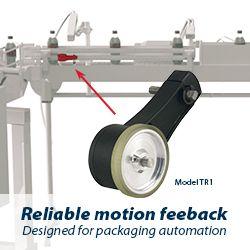Mobile Robots Industry worth $40.6 billion by 2028
The growing demand for mobile robots in healthcare and personal applications, coupled with rapid advancements in robotics and artificial intelligence technologies, is contributing to this market growth.
The mobile robots industry is expected to reach USD 40.6 billion by 2028 from USD 20.3 billion in 2023, at a CAGR of 14.9 % during the 2023-2028 period. The significant growth factors associated with the mobile robots market is the growth of industrial revolution that emphasizes automation and data-driven decision-making. Mobile robots are a key part of Industry 4.0, as they can be used to automate tasks and collect data. Moreover, the rising prevalence of e-commerce is fueling the need for mobile robots in the logistics sector. Mobile robots are being employed to automate various warehouse operations, including picking, packing, and shipping.
Professional robots are expected to account for the largest share of the mobile robots industry during the forecast period.
Professional robots are engineered to independently carry out tasks or work alongside humans, resulting in enhanced precision, swiftness, and cost efficiency. They find application in a variety of areas, such as assembly line operations and warehouse management, offering effective solutions for intricate and repetitive assignments. By minimizing human errors and optimizing operations, these robots contribute to improved workflow. Professional robots are mainly adopted for autonomous ground vehicles (AGVs), agriculture robots, forestry robots, diagnostic robots, rehabilitation systems, and other medical robots are expected to gain a larger market share in the mobile robots industry as they cater to the growing demand for efficient, intelligent, and specialized robotic solutions in various sectors.
Cleaning application is projected to account for significant share of mobile robots industry during the forecast period.
The need for efficient and effective cleaning solutions in diverse industries and environments is driving the increasing demand for cleaning mobile robots. These robots provide a timesaving and labor-reducing alternative to manual cleaning, enabling businesses to optimize their operations and allocate human resources to more intricate tasks. By utilizing cleaning robots, businesses can minimize human contact and decrease the transmission of pathogens in public spaces, healthcare facilities, and other areas with high foot traffic. Furthermore, advancements in robotics and artificial intelligence technologies have enhanced the sophistication of cleaning robots, enabling them to navigate complex environments, adapt to various surfaces, and consistently deliver effective cleaning results.
Asia Pacific is expected to register the highest CAGR during the forecast period.
The mobile robots industry is expected to witness the highest growth in the Asia Pacific region. This growth can be attributed to several factors, including rapid industrialization, technological advancements, increasing consumer demand, supportive government policies, and a strong manufacturing ecosystem. Governments in countries like China, Japan, and South Korea have implemented supportive policies and incentives such as the Robot Revolution Initiative and the New Robot Strategy, offering funding, research support, and regulatory frameworks to promote mobile robots across sectors. Additionally, the countries have implemented supportive policies, funding research and development, and fostering collaborations between academia, industry, and government agencies.
The report profiles key players such as KUKA (Germany), ABB (Switzerland), Honda Motor (Japan), Mobile Industrial Robots (Denmark) and Omron Automation (US).
Featured Product

